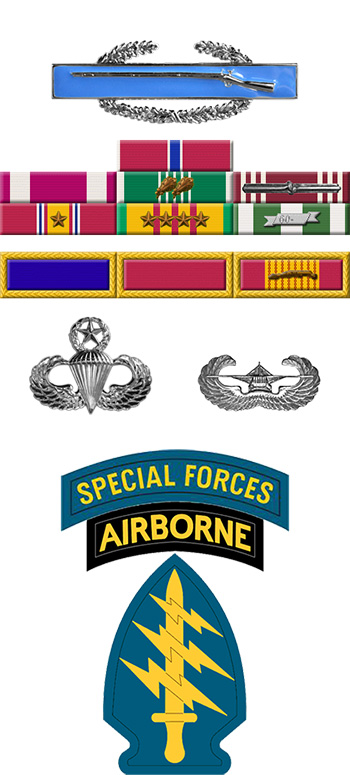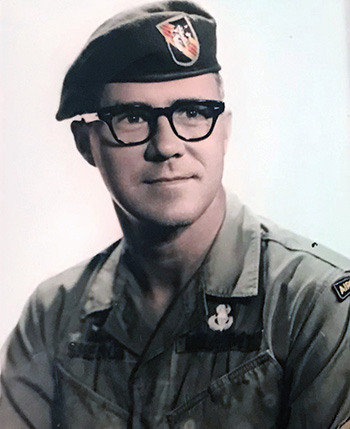
|
Jesse E. Sherrod |
 |
|||
| Rank, Service | ||||
Sergeant 1st Class E-7, U.S. Army |
||||
| Veteran of: | ||||
|
||||
| Tribute: | ||||
Jesse Sherrod was born on October 10, 1931, in Georgia. He enlisted in the U.S. Army on November 1, 1949, and completed basic training and advanced training as a clerk at Fort Jackson, South Carolina, in March 1950. His first assignment was as a clerk with the 11th Airborne Division at Fort Campbell, Kentucky, from March 1950 to June 1951, followed by service as a clerk with Service Company of the 503rd Airborne Infantry Regiment at Fort Campbell from June 1951 until he left active duty on January 30, 1953. SP5 Sherrod returned to active duty on November 29, 1954, and served as an admin specialist in West Germany from November 1954 to November 1957, and then as a Personnel Sergeant at Fort Bragg, North Carolina, from November 1957 to December 1960. After attending additional Admin Specialist training, Sgt Sherrod served as a Personnel Admin Specialist with the 319th Artillery Regiment of the 82nd Airborne Division at Fort Bragg from April 1961 to February 1962, followed by additional Personnel Specialist training at Fort Benjamin Harrison, Indiana, from February to May 1962. He served as a Personnel Specialist with the 1st Airborne Battle Group of the 325th Infantry Regiment at Fort Bragg from May 1962 to May 1963, and then as a Personnel Admin Specialist with the 82nd Admin Company at Fort Bragg from May to July 1963. SFC Sherrod served as Personnel Staff NCO of the 1st Airborne Battle Group with the 509th Infantry Regiment in West Germany from July to November 1963, followed by service as Records Team Leader with the 8th Admin Company, 8th Infantry Division in West Germany from November 1963 to June 1965. His next assignment was as Personnel Sergeant with the 12th Engineer Battalion in West Germany from June 1965 to July 1966, and he then attended Special Forces training at Fort Bragg from July 1966 to March 1967. He served as a Light Weapons Leader with Company A, 6th Special Forces Group at Fort Bragg from April to December 1967, followed by service as an Area Specialist Sergeant with the 5th Special Forces Group in South Vietnam from December 1967 to June 1968. SFC Sherrod served as an Admin Sergeant with the Special Operations Augmentation of the 5th Special Forces Group in South Vietnam from June 1968 to July 1969, and then as an Admin Specialist with Company C, 3rd Special Forces Group at Fort Bragg from August to November 1969. His next assignment was as Detachment Sergeant with Company D, 6th Special Forces Group at Fort Bragg from November 1969 to March 1971, and during this time he served as clerical support for the Son Tay Raid, a clandestine mission to rescue American Prisoners of War held in North Vietnam on November 21, 1970. SFC Sherrod's final assignment was as Detachment Sergeant with Company D, 5th Special Forces Group at Fort Bragg from March 1971 until his retirement from the Army on September 1, 1971. |
||||
|
||||

